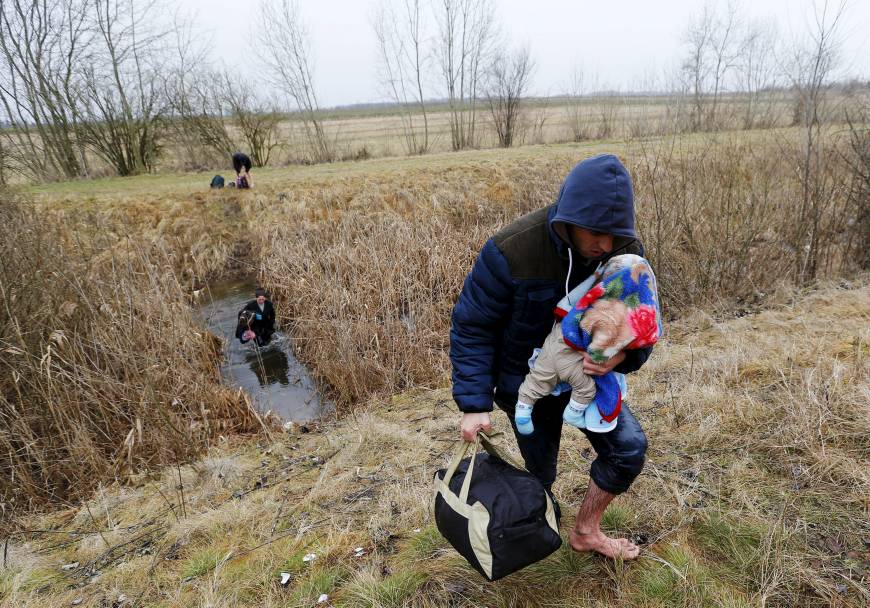European leaders still find difficulties in managing the refugee crisis
Migration 26 October 2015After the decision of the Hungarian government to close the border with Croatia, hundreds of migrants, mainly Syrians, are now entering Slovenia to continue their journey toward Austria and Germany. This leads Hungary to reinstate border controls on its frontier with Slovenia, suspending the Schengen system. The reason behind such decision, as reiterated by Hungarian government, was that it is duty-bound to secure the borders of the European Union from mainly Muslim refugees, who are threatening the prosperity, security and “Christian values” of Europe.
During the last weeks, the scale of arrivals of migrants has already challenged Croatian reception systems and now it risks to threaten also the resources of Slovenia. Dozens of buses are waiting in Serbia at the border with Croatia, and for this reason, Slovenia has suspended rail traffic with its neighbour.
Clearly, the situation in the Eastern Europe becomes more and more difficult to be managed. However, at the last meeting, held on 15 October, the Council of the European Union did not seem to be ready to take important and necessary decision on how to manage the crisis.
Two main issues were tabled for discussion but dropped off for the inability to reach an agreement. One was an alternative to Dublin system, considered “obsolete” by the recent speech of Merkel at the European Parliament. However, the proposal of the Commission to establish a permanent relocation scheme in specific crisis situations was obstructed by those countries who have always been against relocation.
The other proposal was about the adoption of a list of safe countries of origin, to speed up the decision process on asylum requests, including Western Balkans countries and Turkey. One of the problems related to this proposal is that some States are not convinced that Turkey should be considered as a safe country of origin, especially because currently 22% of asylum applications from Turkish nationals receive a positive decision at first instance, as reported by Eurostat. However, after the recent meetings, held in Brussels, in which Erdogan discussed with the European leaders how to support their asylum system, it has become almost politically impossible to withdraw Turkey from the list as Ankara would perceive any decision as a provocation.
Agreement was achieved on what should be the pillars of cooperation with third countries, especially with Balkans and African countries, which was identified as a first priority by EU leaders. It has been decided that during the Valletta conference on migration and cooperation between Europe and Africa, three main aspects will be discussed: how to “achieve concrete operational measures” in fields related to return, readmission, criminal networks and illegal migration; how to make “real efforts” to address root causes and support development; how to show “commitment concerning continued possibilities for legal migration”.
The creation of a European Border and Coast Guard System was also discussed by EU leaders, but no decision was taken on this either. Leaders stressed interestingly that such a possibility must take place in the context of “discussions” and “in full respect of national competence”, reiterating State’s reluctance to give up their sovereignty.
It is important to highlight that the European Council conclusions foresee the enhancement of Frontex’s mandate in the field of return, including the creation of a return office within Frontex and the possibility for the EU’s border agency to organise joint return operations on its own initiative. However, such measures require legislative developments and will therefore take some time.



